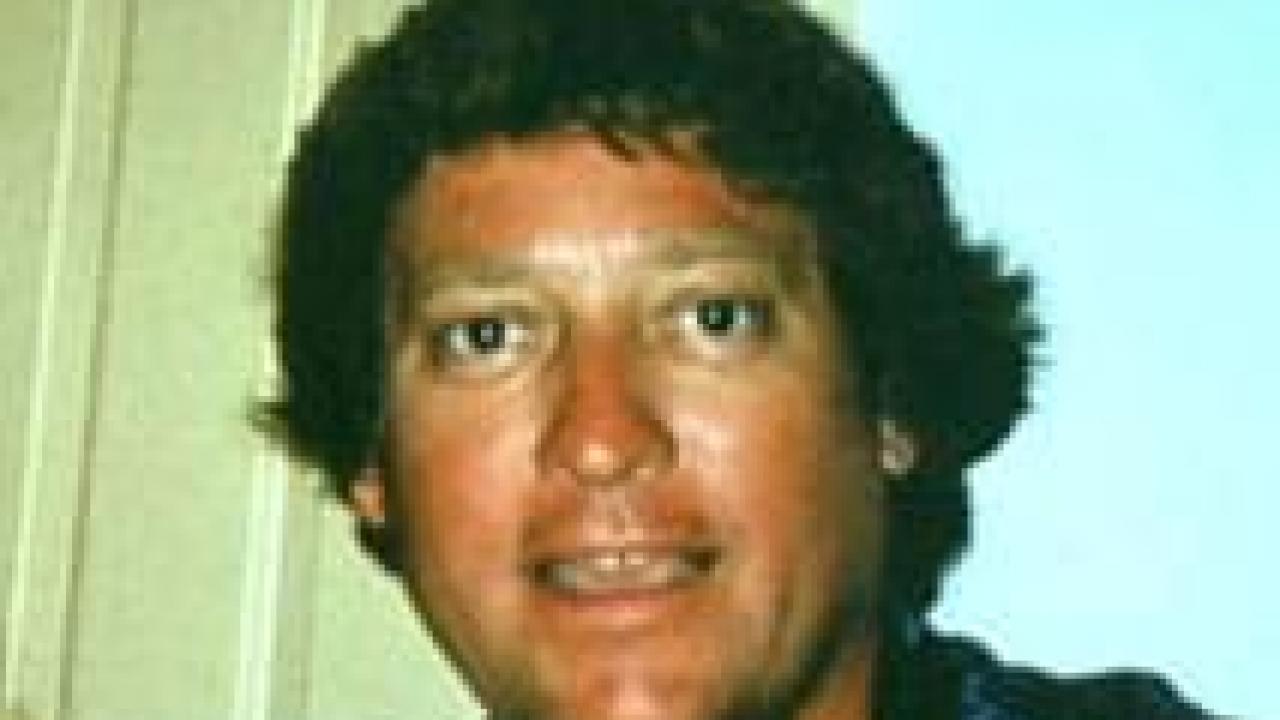
More than a year after the shocking murder of Michelle Jones, her best friends, Lisa Emmons and Debbie Knight, still felt the wrenching loss.
"She wanted so much more out of life, but she was robbed," said Debbie. Michelle was 37, single, and a successful executive at The Golf Channel in Orlando, Florida.
The three women had been friends since they were teenagers, but the event that would tear them apart unfolded on Tuesday, September 2, 2004. A violent storm, Hurricane Ivan, gathered in the Atlantic, prompting an evacuation of the Florida Keys. "Michelle kept an extra-close watch on it because her aunt and uncle lived there," recalled Lisa.
"She said, 'Of course … Come stay with me,'" Debbie added.
To Michelle's delight, the aunt and uncle, Teri and Charlie Brandt, joined her for the weekend; Michelle was close to both, but especially to Teri, her mother's sister. "Twenty minutes after they got there I got the phone call from Michelle. 'Teri and Charlie are here, where are you? Why aren't you over here?'" remembered Lisa. "They were hanging out." "
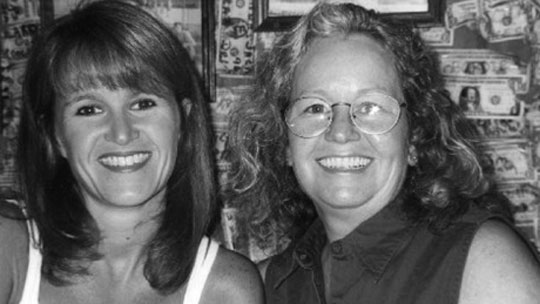
"She had a Jacuzzi and a pool. She had a lovely home," Debbie added.
Meanwhile in North Carolina, Michelle's mother, Mary Lou, wondered how the weekend was going. "We were very close, very close. We talked almost every day," she remembered.
Mary Lou was puzzled when Michelle didn't answer her call. "We placed a call to Michelle Monday night and Tuesday night. We got her voice mail," Mary Lou recalls. By Wednesday night, there was still no answer and Mary Lou was beginning to get very worried.
She called Debbie, asking her to go check on Michelle, and stayed on the phone as Debbie walked up the drive to Michelle's home.
Debbie said she thought something was wrong and was worried about what she would find. When her key wouldn't open the front door, she headed to the back, with Mary Lou still on the phone.
"There was a garage door with almost all glass. So you could see in," Debbie recalled. "I was in shock."
Inside the garage, she could see Charlie hanging from a rafter.
Rob Hemmert, the lead investigator, had to brace himself for the gruesome scene in the sweltering garage. "I could see Charlie Brandt hanging from the rafters in the garage. He was hanging from a bedsheet, which was around his neck, and there was a ladder close by to his body," he explained.
Brandt had apparently committed suicide.
As bad as that was, Hemmert was unprepared for what awaited him inside Michelle's well-kept house.
"It was just a nice home. It had that feminine kind of feel to it. All of those nice decorations [but] the aroma of her home was masked by death. The smell of death," Hemmert said.
Teri's body was slumped on the living room couch. She'd been stabbed in the chest seven times. Michelle's mutilated body — decapitated, with her heart removed — was in her bedroom.
All three bodies were locked inside the house; according to Hemmert there were no signs of any kind of struggle or fight. That led him to one undeniable conclusion: Brandt had committed the murders and then hung himself.
In Hemmert's reconstruction of events, the evening started routinely enough. They had dinner together. Charlie had cooked some type of fish. They may have had some drinks, some wine.
But after dinner, Michelle spoke with Lisa on the phone and told her not to come over. Teri and Charlie had been arguing and weren't the best of company. They had a little too much to drink. Michelle was tired and wanted to go to sleep.
Hemmert learned that although the Brandts had planned to leave that day, their bags sat in the front hall; Charlie insisted they stay an extra night.
But there was no reason to do so.
"The hurricane had passed so he chose to stay for a reason," said Hemmert. "I think that was because he knew what he was going to do."
Brandt used Michelle's own kitchen knives to kill both her and his wife. "Teri was killed in a quick, repeated stabbing-type attack to her chest. In comparison, Michelle had one stab wound to the chest," Hemmert explained.
Charlie then carefully put her bloody clothes in the bathroom sink, before dismembering Michelle's body. "It all took time. And it took thought," he said. Mary Lou had difficulty accepting that this monstrous crime was the work of the mildmannered brother-in-law she'd known for 17 years. "When they described what had happened to Michelle, it was even beyond description," said Mary Lou.
It was just as unfathomable to Michelle's horrified friends, who considered Charlie a bit of an oddball, but certainly not dangerous in any way.
"He was just very quiet and reserved," remembered Lisa. "He would just sit back and observe. Michelle and I used to call him eccentric."
Perhaps for that reason Charlie seemed particularly well suited to Teri's easygoing personality, said Debbie.
"Teri was gypsy-like. Just happy-go-lucky. Nothing bothered her. She was a wonderful person. Very kind, very sweet," she said.
Teri's closest friend, Melanie Fecher, said Teri and Charlie were inseparable. "If my husband could love me one-third the amount that Charlie loved Teri, I'd be the luckiest woman in the whole world," she said.
Melanie said she never detected any problems in Teri's marriage, saying they never argued, that she never saw him get angry and that, to her knowledge, Charlie didn't have a bad temper.
Everyone thought it was a great match. "They often did things for each other that would make each other feel good," Hemmert recalled. "One of those things was that they would make their lunches for each other. Because the lunch tasted better when it was made by the one who loved you."
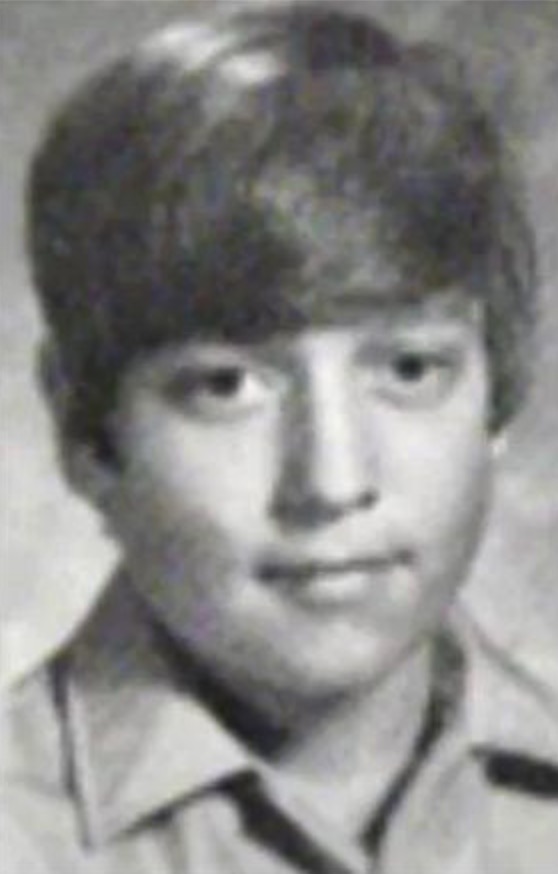
Yet Charlie stabbed Teri seven times. He left no note, no explanation. But hints came a few days later, from a surprising source: Charlie's older sister, Angela.
She was supposed to have joined the other relatives for a police briefing, but hadn't shown. "She was in a car in the parking lot. She basically came to us and said there's something I need to tell you people," Hemmert explained.
Angela shared a terrible secret with investigators — a secret her family had kept hidden for more than three decades. She haltingly told her story on tape to an astonished Hemmert, telling him exactly what happened one hellish night in January 1971.
At the time, Angela was 15 and Charlie was 13. They lived with their parents and two younger sisters in Fort Wayne, Indiana. It was just after 9 p.m., and Angela had been reading in her room. "My mom was in a bath and my dad was shaving. And I heard my father yell, 'Charlie don't' or 'Charlie stop!'" Angela told Hemmert.
"Charlie walked into a bathroom while his father was shaving. Shot him in the back. He went down. He stood over [his] mother, she was in a bathtub, bathing, and fired several rounds into her body and killed her. She was eight months pregnant," said Hemmert.
"The last thing I remember hearing my mom say was 'Angela, call the police,'" she told Hemmert in the interview. But there was no time. Angela told Hemmert that after shooting their mother, Charlie had turned the gun on her but that it wouldn't fire. "The next thing she knew they were physically fighting," Hemmert said.
She tried desperately to calm her brother down by telling him how much she loved him. "I saw the madness, the glazed-over look. I saw it disappear," Angela recounted. After her brother calmed down, Angela ran out of the house screaming in her bloody nightgown. She ran barefoot through the snow to her neighbor's home and beat on the front door, startling then-16-year-old Sandi Radcliffe.
But by the time Sandi answered the door, Angela had already run to another house, and it was Charlie waiting outside. "There was just a 'knock, knock' and I opened up the door and he goes, 'Sandi, I just shot my mom and dad,'" she recalled. Newspaper reports of the murder were fragmentary; it was covered as a freakish crime by a quiet kid — the last kid on earth anyone would expect to shoot anyone, much less kill his own mother.
"That's why this whole incident was such a shock," said Sandi. "Because they were very close, incredibly so. He was a momma's boy."
Just a few crime scene photos survive in the Fort Wayne police archives. Dan Figel, then a young detective, led the investigation. When the call came in, he rushed to the hospital, hoping that Charlie's critically wounded father would survive and be able to explain what had happened.
"He just kept saying, 'I don't know why my son did this. I have no idea as to why my son did this,'" Figel remembered.
But he affirmed that his son had done it, and Figel took the boy into custody. "He was in shock. His eyes were dilated and he couldn't understand why he had done this," said Figel.
Police didn't know what to make of their adolescent killer. The Indiana courts ordered that Charlie undergo three separate psychological evaluations.
One was with psychiatrist Ronald Pancner, who agreed with his two colleagues that Charlie was a mystery.
"Basically, I was looking for mental illness. And he wasn't showing the signs and symptoms of serious mental illness, which I thought was what the court wanted to know," said Pancner.
Pancner talked with Charlie about his friends, his family, his interests, trying to uncover some deep-seated problem. "This kid did well in school. He didn't get into any trouble. He loved his family, he said. And the family said that he was a loving kid, you know. So, there wasn't anything to diagnose," the psychiatrist explained.
But there was something seriously wrong with him.
"To the layperson, this doesn't make sense. The guy killed his mother. She's pregnant. Shot his father. Why doesn't he have a mental illness? But he doesn't have a diagnosable mental illness," Pancner said. "We found no psychosis, no distorted thinking that would basically be a reason for this crime to be done."
Asked why Charlie turned violent, Pancner said, "We don't know."
Whatever his demons may have been, 13-year-old Charlie was still too young to be held criminally responsible for his crimes in the state of Indiana. He was never charged with murder, and he was never brought to trial. Instead, a grand jury investigated and issued an ominous warning, that such anti-social behavior could happen again in the future.
Charlie was sent to a psychiatric hospital, where he was incarcerated for just over a year — until his merciful father won his release. Herbert Brandt then pulled up stakes and moved the entire family, Charlie included, to Florida.
"He never spoke to Charlie about what took place," said Hemmert. "Never said, 'Hey Charlie, why did you shoot me? Why did you kill your mother?' You know? 'What were you thinking? How about an apology?' None of those things. He just accepted him back into the home as if nothing happened."
Even Charlie's two baby sisters, too young to remember, were never told the truth about their mother's death, which infuriates Michelle's parents, Bill and Mary Lou.
"There's something wrong here. There's something wrong with a system that allows a 13-year-old boy to kill his mother, to try to kill his father and an older sister and nothing was done," said Mary Lou.
Both Mary Lou and Bill are certain that, years later, Charlie never told Teri.
"I don't think she would have married him, period, at all had she known," explained Bill.
The Joneses say that, to this day, Herbert and Angela Brandt have never acknowledged that telling Teri might have saved lives.
Mary Lou said Herbert and Angela should have known that Charlie had the potential and capacity to kill. She added that Herbert has never tried "to say how sorry he was that this happened to us."
For Michelle's best friend, Debbie, the anger goes still deeper.
"Charlie's father should be exposed. He knew what his son did. He knew the crimes he did. I would love to see him sitting right next to me 'cause I find him guilty," she said.
Herbert, now 75, lives in Florida, as does Angela, now 51. Both have declined requests for interviews.
But talking with them didn't much help Hemmert understand the disordered soul of Charlie Brandt. But he would find some clues in the Florida Keys, where they had been left by Charlie.
Hundreds of miles from Orlando, the Brandts' house on Big Pine Key sat exactly as it had been left, boarded up in meticulous preparation for Hurricane Ivan.
"I'd never seen anything like it," Hemmert recounted. "Charlie took it to the extreme. Every piece of wooden panel that was cut for each window looked like it had been custom-fit. The holes for the doorknobs on the French doors were meticulously cut. Perfectly round circles." It was something one might expect from an engineer — Charlie worked as a radar technician.
Inside the house, the same attention to detail was evident. The first shock came when Hemmert stepped into the Brandts' bedroom and came upon a graphic poster of the female anatomy on the back of their bedroom door. "
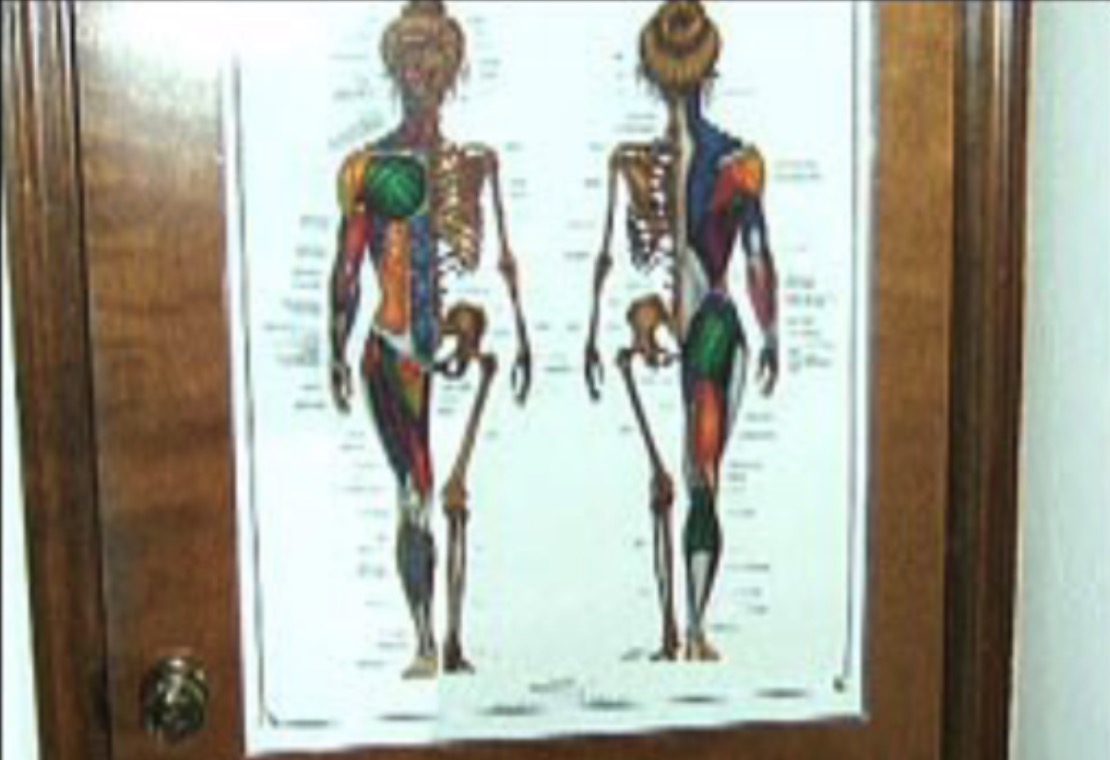
"Her hair's put up in a bun. Which I had never seen before. And it's showing the skeletal system and the muscular system," Hemmert explained, describing a doctor's office-style poster.
Teri would have seen the poster every day, and Hemmert couldn't help but wonder if she hadn't considered it a big deal. "Charlie and Teri were not in the medical profession." There was no reason for that chart to be there. What was it doing in their home?
The investigator had an unsettling answer to his own question. "I'm looking at a chart that's got these portions of the body exposed. And he's virtually duplicated or exposed some of those areas of the body in what he did with Michelle," Hemmert explained.
There were other unsettling reminders, including journals, medical books, and an anatomy book. "And in that book there was a newspaper clipping that showed a human heart," said Hemmert. "Knowing what he did to Michelle and then finding those things, it all started to make sense."
So did the Victoria's Secret catalogues found in the house, addressed to Charlie. "He always referred to Michelle as 'Victoria Secret.' He gave her that name. And he never referred to her as Michelle," said Hemmert.
Far from being just a friendly uncle, to the horror of the Jones family, Charlie had been secretly infatuated with his own niece.
Bill Jones said his daughter would have been appalled had she known this. Hemmert believes Charlie was obsessed with Michelle.
"He was fascinated by her, and I think ultimately he intended on killing her. I think that's evident in the way he spoke about her and [in] the things that he looked at on the Internet," he said.
When investigators examined Brandt's browser history, they found he had been on ghastly websites that featured death fantasies, necrophilia and violence against women.
"You saw where he may have gotten some of his ideas and thoughts and fantasies from," Hemmert said.
"The thing that we noted immediately was that the things he did with her body did not appear to be someone who had done this for the fist time — there had to be more."
In fact Hemmert was certain that if he looked hard enough, he would discover evidence that Charlie was a serial killer. The only question was how many other victims there had been over the last 30 or so years.
To answer that, police first tried to match their unsolved murders with Brandt's travels in the United States and abroad.
Potential cases poured in and investigators weeded through them to focus on those with specific similarities to Charlie's murder of Michelle.
Criminal profiler Leslie D'Ambrosia was asked to analyze dozens of these cold cases. "There's no boilerplate profile for a "serial killer". It doesn't exist. It's all individual; it's
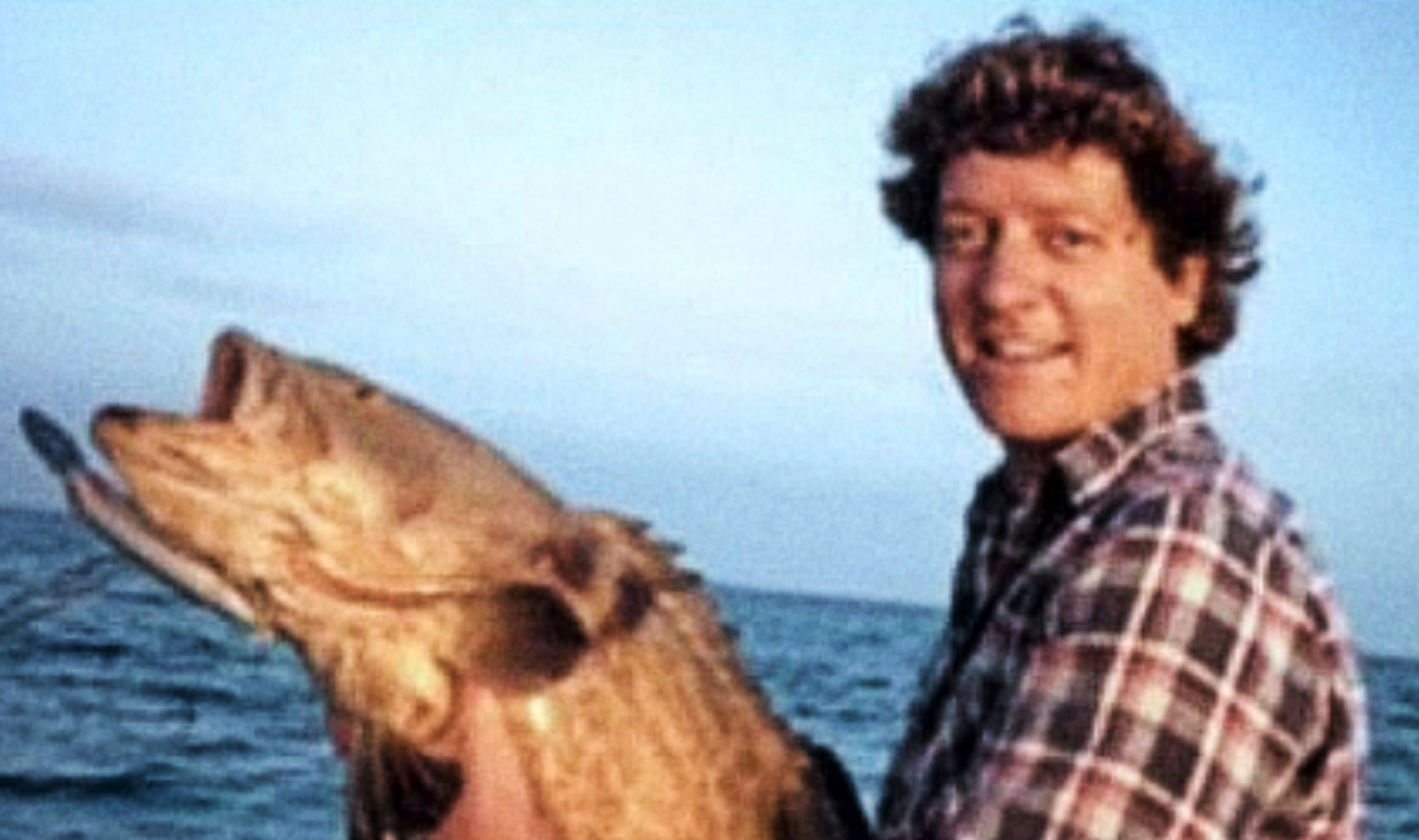
based on a person's life experiences, and everyone has a different life experience." Charlie's trademark was precision and a methodical technique. "How a person normally behaves is translated into how they carry their crimes out," said D'Ambrosia. "He's quite organized and planned in what he does. He's intelligent, very reliable, very responsible."
To the outside world, he was just an ordinary guy. Teri's diaries, found in the house, reflected that.
"They weren't detailed writings, they were just something very simple from, went fishing, caught a good bull dolphin, to nice dinner with Charlie. Boat ran out of gas. Buy steaks for dinner," recalled Hemmert.
There were few hints of anything amiss. "We only found a couple of interesting notations and those were 'weird day.' But there's nothing more specific, and we have no idea what occurred to cause her to write that," said Hemmert.
Teri also noted times when Charlie was out late, even out all night, but never explained her diary entries.
Musician Jim Graves spent time with Charlie in the 1980s, when he was married to Angela. He'll never forget the day she confided in him that, decades before, Charlie had shot their parents, killing their pregnant mother.
"I came home one day and she was crying rather uncontrollably, and said she had something that she absolutely had to talk to me about," Jim recalls. But he said that, after getting to know him, it seemed clear that whatever had happened years before, Charlie was OK now.
"He was so gentle that when there was a bug in the house he would refuse to step on it and carried it outside," Jim remembers.
Today, Jim regrets that he didn't pay more attention — especially on one memorable occasion after he and Angela had split up and the two men got to talking. "
We were havin' a few beers after fishing all day and everything. I was just really despondent. Somehow we started talking about revenge. Well you know you get your feelings hurt and [you] wanna lash out. I believe he looked at me and said, 'Well, if you really wanna get revenge, you should kill somebody and cut their heart out,'" Jim recalls. "And it creeped me out at the time."
But Jim dismissed it and, years later, when a new girlfriend wanted to fix up her friend Teri, Jim called Charlie.
"No way in the world would I know that they would fall in love and get married!" said Jim.
Charlie and Teri married on Aug. 29, 1986, and Jim was their best man.
"I did have a conversation with Charlie. And I insisted that he inform her of his past," Jim said.
He said Charlie did tell Teri about the 1971 shooting. "After they got married and I went down to visit them I asked them when they were gonna have kids. And she told me, considering everything, that she didn't think it was a good idea."
Jim took that to mean that she knew. "Here's the thing about Charlie Brandt that's disturbing — beyond what we already know is disturbing in how he commits his crimes," said D'Ambrosia. "He's very well traveled. For many years, he has traveled all over the United States and even outside the United States."
More than 30 years had passed from the time he shot his mother until he killed his wife and niece, and what investigators urgently wanted to know was how many other crimes Charlie Brandt had likely committed.
D'Ambrosia doesn't think we'll ever know. But she's working with Hemmert and a task force from around the state to at least try to narrow it down.
In the search for unsolved murders that fit Brandt's distinctive profile, one immediately jumped out: the 1995 murder of Darlene Toler, a prostitute in Miami's Little Havana section.
Det. Pat Diaz handled the investigation and remembers that it was unusual. Like Michelle Jones, Toler had been decapitated and had her heart removed.
Her body was found along a highway. Apart from the manner of her death, two pieces of evidence convinced Diaz that Brandt was the killer. "The body was wrapped up in a blanket, then wrapped up in plastic and tied, almost like a package," he explained.
In that blanket, dog hairs were found; police also found dog hairs in the back of Charlie Brandt's truck. Brandt's truck also contained another clue.
"Every time he put gas in the truck, he kept the mileage," Diaz said.
In those records, a spike occurred right around the time Toler was killed, 100 miles away from Brandt's home.
Asked whether he thinks Brandt drove from the Keys to Miami just looking for somebody, Diaz said, "He had come to Miami. Him and his wife worked opposite shifts. And he did what he had to do."
DNA analysis of animal hair is difficult and costly, but police say that — if they get it — a match would close the Toler case. "That'll get me to 100 percent. It wouldn't be 99, it'd be 100 percent," said Diaz.
But a second murder, much closer to home, fits the pattern even more persuasively. It goes back 17 years to a summer night in July 1989, and it happened four blocks from Charlie Brandt's house.
Under a bridge off Big Pine Key, local fishermen made a frightening find. Initially believing they'd reeled in a mannequin, the fishermen quickly realized it was the body of a woman.
Monroe County Homicide Det. Trish Dally was the lead investigator in the murder of 38-year-old Sherry Perisho, a local woman who lived out of a small rowboat.
"She had her bicycle that she would put on the bow of the boat and then she would take the boat out approximately 100 yards off shore and that's where she lived," Dally explained.
Investigators also believe it was where she died. "What we believe happened is that she was placed on the bottom of the boat, possibly with her feet off the stern," Dally said.
For years the boat has been stored in the evidence yard. In the wood, one can see cutting marks, leading Dally to believe the bottom of the boat was used as a cutting table.
As with the other victims, Perisho was decapitated, and her heart was cut out. For years, all police had to go by was a sketch of a man spotted running across the highway near the scene — that is, until Charlie's former brother-in-law, Jim Graves, revealed something Teri had said just after the Perisho murder.
"She goes, 'Well you know, somebody was killed not too far from our house. I'm thinkin' about, you know, callin' the sheriff.' And I said, 'Well, why?' And she goes, 'Well, because of Charlie's past,'" Graves recalls.
Shocked, Graves said he later confronted Charlie. "I look at him and I said, 'You know your wife thinks you might've committed this heinous act.' And he was like, 'I didn't do it,'" he said.
"You didn't think, 'My God, you know, could he have done this?'" Spencer asked. "You know, I couldn't tell you what I was thinking at the time," Graves admitted. But when investigators recently looked again at the Perisho murder, they talked with Graves. Under oath, he was much more specific about Teri's story. "
She apparently found Charlie downstairs and he had blood on him. And she asked him what had happened and he gave an excuse that he was filleting fish, although it was a workday, it was in the evening, she went ahead and believed him," Det. Dally recalled.
Graves' damning statements were enough to officially close the Perisho case. Still, questions linger. Why was there nothing about the incident in Teri's diaries? Why was there no mention of Charlie's alibi or whether she believed him?
And if she didn't believe him, why did she stay? Dally had her own speculation. "You're talking about somebody that you're in a relationship with, you don't want to believe somebody that you have you committed your life with would commit a crime, especially that heinous," she explained.
But in the end, Charlie deceived everyone around him. "And that's the sad part about this — these people were completely misled," said Hemmert.
"They knew Charlie Brandt to be this guy that they could rely on, that was a friend and was there when they needed him. 'We knew Charlie.' They knew the 'work' Charlie. The 'go out on the boat fishing' Charlie. They didn't know the true Charlie. We do."
Since the murders of Michelle Jones and Teri Brandt, family and friends have struggled to come to terms with their deaths.
"We have to face every day without our daughter and that is horrible," said Michelle's mother, Mary Lou.
"We lost two people who were very dear to us," said Bill, her father.
They have struggled in part because of the way they died, say Michelle's parents. "Michelle was totally destroyed and that is devastating," Mary Lou explained.
Time has only intensified the Jones' fury at Herbert and Angela Brandt for shielding Charlie. "This man may have been able to have been stopped," said Bill.
"He may never have been cured, but he could have been stopped."
Asked if he holds Herbert and Angela responsible for the murders, Bill said, "Well, I do, because they should have gotten the man help. And they knew he needed help."
Mary Lou said Angela told her right after the murder that she had been terrified of Charlie for years.
"Angela said that she was glad that Charlie had committed suicide because now she could sleep at night," said Mary Lou.
"For 20-some years, she would not allow the air conditioner to run, the windows to be open and unlocked in her home because she was afraid. She was afraid Charlie would come back to kill her."
Despite what Jim Graves said, the Joneses still find it hard to believe that Teri was aware of anything about her husband's past. "It's just very hard for me to conceptualize my sister could know something about a person who could do what Charlie did," Mary Lou said.
"If she knew that, could she have stayed with him? I don't know. I don't think so. In my heart I don't believe so."
Records from Charlie's brief stay in the psychiatric hospital might shed more light on his secrets, but the Brandt family refuses to allow the state to release them.
"They had a family secret," said Mary Lou. "The tragedy is that they're going to try and preserve the family secret."
"I'd love to see the medical records and find out what type of treatment he had. If any. And how they handled him," said Hemmert, who is left with a host of unresolved questions as well.
"What triggered him back in '71 to kill his mother? What actually was the breaking point for him? I don't know."
Asked what he would ask Charlie if he had the opportunity, Hemmert said, "Why? What was going through your mind at that specific point in time that caused you to do what you did? And why was it so different than how you took the life of Michelle Jones versus your wife Teri?"
Mary Lou has her own theory about why Charlie acted as he did. "I believe he had a covert, evil nature, and I believe he was able to control it and cover it," she said. "He was an invisible criminal walking around."
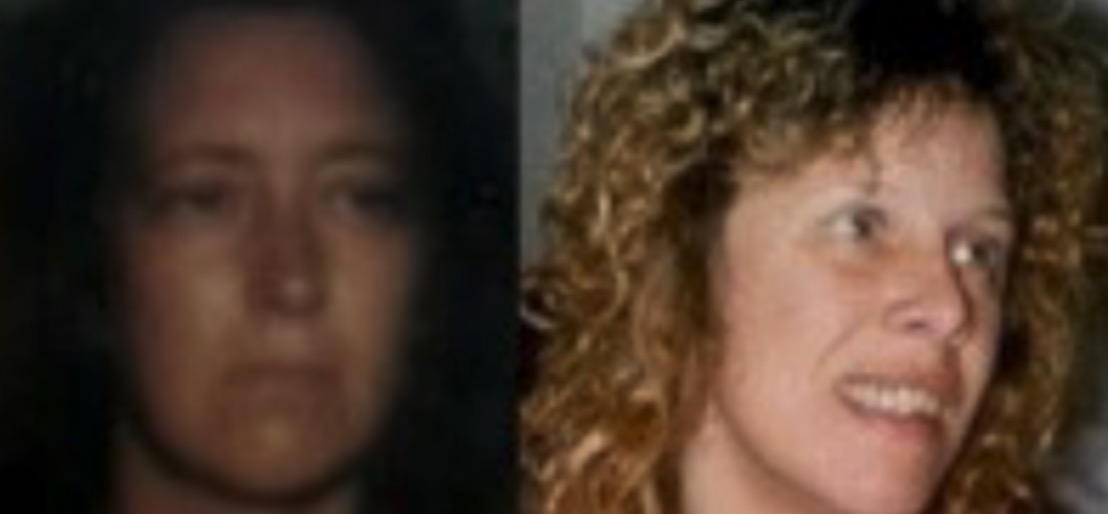
A covert criminal whose total number of victims will likely never be known, despite the best efforts of law enforcement.
"A lot of these cases are cold cases. They're old. They may not have the physical evidence," Hemmert explained. "They require an enormous amount of time and legwork. And the resources are limited everywhere. But we're not going to give up." Nor will the Joneses, who are pushing for new laws to ensure that the outrage of Charlie Brandt will never repeat itself again. They are pushing for a public database, much like that for sex offenders, which would include anyone of any age who has ever killed another person, regardless of circumstances.
"If we can do something to help somebody else to prevent them from facing what we did, then Michelle's life will have meaning. Teri's life will have more meaning. There should not be Charlies on the street," said Mary Lou.
Charlie Brandt is gone, but for Hemmert this case is, in many ways, not closed. "I still think about it every day what happened here," he said. "Michelle and Teri and how evil Charlie was."